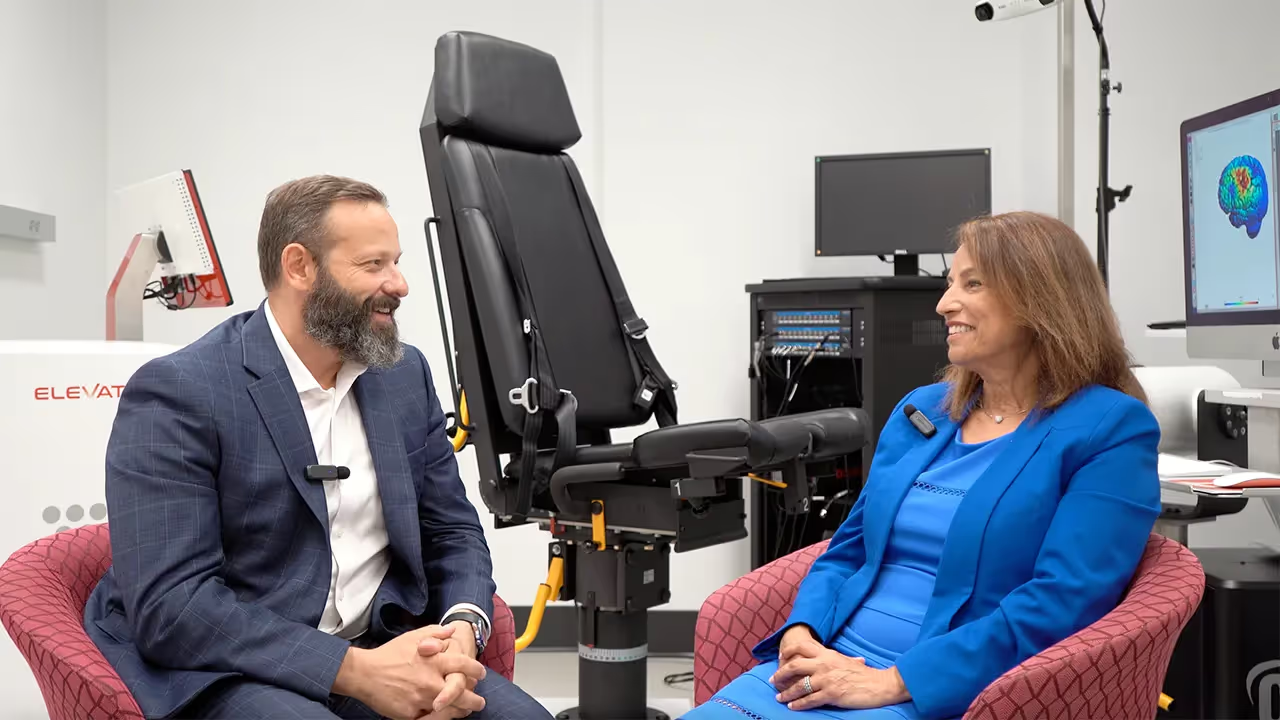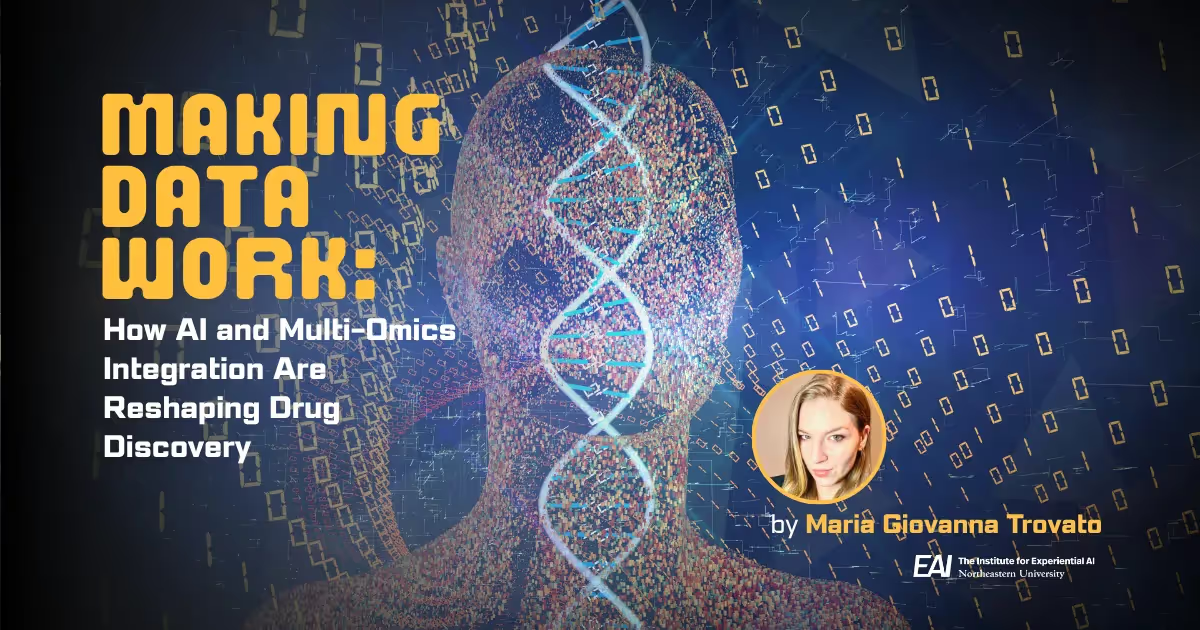Fireside Chat Explores AI's Accelerating Impact and Future Potential in Health

To get an inside look at how AI is transforming health and medicine, the Institute for Experiential AI’s director of AI + Health Gene Tunik sat down with Hoda Sayed-Friel, the former executive vice president of MEDITECH, for an illuminating conversation that kicked off the institute’s AI + Health fireside chat series.
The pair discussed the many ways that AI is already leaving its mark on health and looked ahead to what’s next. Tunik, who is also the associate dean for research and innovation at the Bouvé College of Health Sciences at Northeastern University, highlighted the imperative of Responsible AI and the divide in technological literacy between patients and health tech companies. Sayed-Friel’s experience as an executive at a leading medical IT company gives her a unique perspective on the industry’s AI transformation.
In this conversation, the two experts explore real world examples and the potential for AI to:
- Augment electronic health records (EHRs) for clinical purposes
- Lessen the burden on care providers
- Improve the efficiency of back-office operations
- Gain insights into the health of patients
- Identify new therapeutic drugs
- Predict disease onset
- Develop new drugs more efficiently
"We have this moonshot to cure cancer, right?" Sayed-Friel said. "AI is going to help with that. I don't know, without AI, whether that was an actual, achievable moonshot or not, but I have high hopes that with AI, we'll be able to make a dent in it. With EHRs, I hope that we're able to fully reduce the burden for the clinicians, as well.”
They also discuss the benefits and challenges of implementing AI in healthcare, including the need for caution, carefulness, and upskilling in AI literacy, concerns about transparency and trust in AI-driven algorithms, the importance of evaluating the efficacy of AI tools - and of involving physicians and other stakeholders in the governance process. They also highlight how Northeastern University is working to improve AI literacy across disciplines.
"We're developing a curriculum tailored to the clinician and upskilling of the current professional," Tunik said. "The classes that we're developing will provide a different level of competencies around what AI is and what's under the hood of it. We're not getting into the level of detail that you would find in a computer science program, but we're doing enough to make these individuals just dangerous enough so that they can talk to the AI developers, explain things to patients, and be strategic and deliberate about using these tools intelligently and safely for clinical decision-support."
Watch the full conversation here.
Experts in the institute’s AI + Health focus area partner with organizations to integrate AI into their operations and improve business outcomes. We also convene leaders in the space to share best practices and solutions to common challenges. A major milestone in this effort is our recently announced conference, The State of AI in Precision Health, which will take place on Northeastern University’s Boston campus and online on Oct. 10. Space is limited, so register now to join industry, research and policy leaders as they reveal how AI is accelerating progress in health and the life sciences!




